Having extra cash available can be a great opportunity to invest in yourself and your future. However, having too much cash on hand, especially in high inflationary times, can negatively impact your purchasing power in the long run. The risk is that due to inflation, you won’t be able to acquire as much in the future for the same amount of money you have today.
To help mitigate purchasing power risk, short-term investments can be an excellent way to put your cash to work and help you reach your financial goals. With so many options available, it can be difficult to decide which one is right for you. In this blog, we will explore some of the short-term investment vehicles that are available and discuss their advantages and disadvantages in order to help you make an informed decision about how best to use your high cash reserves.
Short-Term Savings Vehicles
Online Savings Account – Online savings accounts are offered by so-called “online banks” – federally regulated banks that maintain no real-world presence. Like the banks you see driving down the road, deposits at these online banks are covered by FDIC insurance but generally offer higher interest rates on their savings accounts compared to brick and mortar banks. As with any other bank, the interest rates for an online savings account are not locked in and can fluctuate each month.
Money Market Account – Money market accounts offer higher interest than your normal savings account. While the interest rate is typically higher than savings accounts, the rate is variable and can fluctuate each month. Money market accounts also have FDIC coverage up to the normal limits, and accessibility for customers by offering debit cards or check-writing capabilities. On the downside, with certain banks you can be limited to the total number of transactions within a given time and be required to maintain certain account balance minimums.
Money Market Fund – Unlike the money market account described above, a money market fund is a mutual fund managed by an investment company. You would purchase this type of vehicle within an investment account, and they commonly have minimum purchase requirements. A money market fund is a lower risk investment that does not have any guarantees or fixed rates. These investments do not add much growth to your initial investment over time, but still typically have a better return than cash in the bank. Money market funds do not have FDIC coverage and can be affected by rising or decreasing interest rates.
Certificate of Deposit (CD) – A certificate of deposit (CD) is a conservative savings vehicle that pays interest after a designated period of time. CDs are offered by most banking institutions and can be covered by FDIC insurance up to the specified limits. They are funded by a lump sum deposit and have various maturity terms that range from a few months to a few years. If you withdraw from the CD before the maturity term has been satisfied, penalties can be applied. The interest rates offered on a CD are fixed, so if you leave the assets in the CD until maturity you will receive the stated rate. Note that this means you will only receive the stated rate regardless of any interest rate hikes during your CD term. The interest incurred from a CD is taxable when it is applied to your account, not at the time of maturity.
Short-Duration Bonds – Short duration bonds are another investment vehicle that can be used in a short-term strategy. Like the money market mutual fund, it can also be purchased within your investment account, either as individual bonds or through a mutual fund. To simplify: a bond is a loan from the investor to the government or company issuing the bond in exchange for a series of interest payments given over a defined time frame. While short term bonds can offer higher interest rates than money markets or CDs, there is a higher level of risk associated with the financial stability of the issuer (with the exception of the United States Treasury) and if they will be able to make their interest payments. Prices of these bonds will also be impacted by interest rate fluctuations, though prices of short-term bonds tend to fluctuate less than those of longer-term bonds.
Alternative Options to Consider for High Cash
Debt Repayment – Having excess cash can be a good opportunity to pay down outstanding debt (credit cards, mortgage, student loans, line of credit, etc.). Being able to reduce your debt burden can free up monthly cash flow, which can be reallocated towards other goals like retirement savings.
Retirement Savings – Another option is to use some of your cash to help save for retirement. A Traditional IRA or a Roth IRA can both be beneficial tools when saving for retirement, but it is important to understand the intricacies before making your contribution. Since each plan has its own requirements, collaborating with a BentOak Capital advisor can help you determine which retirement savings vehicle is best for you.
Education Funding – If you have children, grandchildren, nieces, or nephews, you can also put some of your cash to work by helping save for their education (and it makes a really nice Christmas or birthday gift, too). There are plenty of education funding strategies to choose from depending on what best suits your needs.
Charitable Giving – Another option to consider is using some of your high cash to meet philanthropic gifting goals you may have. Donating to charity is not only enriching from a moral viewpoint but can potentially provide some tax benefits as well.
There are many different short-term investment options available to utilize, especially if you have excess cash. Each option offers a unique set of advantages and disadvantages depending on how much cash you have, your goals, risk tolerance, and the amount of time before you plan to spend the cash. It is important to explore all avenues that may be beneficial in helping you meet your objectives. Before making any decisions, we recommend discussing your options with a BentOak Capital advisor who can help guide you towards the best choice possible given your individual needs.
The opinions voiced in this material are for general information only and are not intended to provide specific advice or recommendations for any individual. All performance referenced is historical and is no guarantee of future results. All indices are unmanaged and may not be invested into directly.







